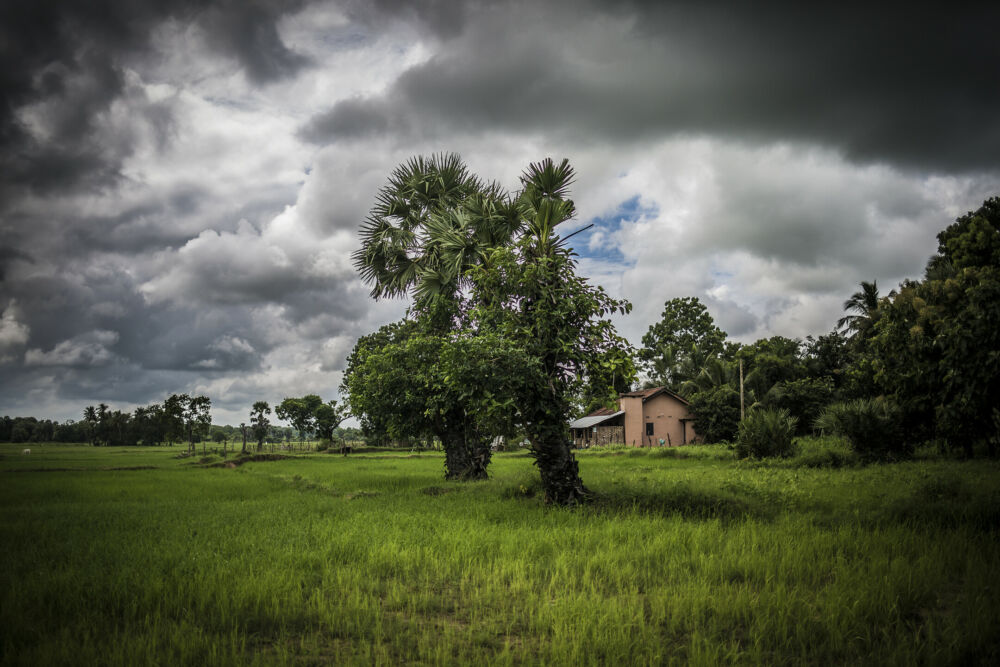Sri Lanka
Sri Lanka, an island nation located in the Indian Ocean, south of India, is renowned for its diverse culture, rich history, and stunning landscapes. Covering an area of approximately 65,610 square kilometers, it is home to a population of around 21.8 million people. In 2019, with an income per capita of USD 3,852, Sri Lanka was reclassified as a lower middle-income country by the World Bank from a previous middle-income status.
We Effect started in Sri Lanka in the 1970s. Striveing to play a vital role in addressing the multifaceted challenges faced by Sri Lanka, in 1987, We Effect initiated development programs with the collaboration of the Ministry of Cooperatives; setting up agricultural cooperatives in the Mahaweli region, supporting fisheries cooperatives with revolving funds for loans, promoting Eco-friendly farming for sustainable development, and developing fair trade. In 1994, We Effect registered as a non-government organization in Sri Lanka, becoming an independent organization. This initial engagement ended in 1999.
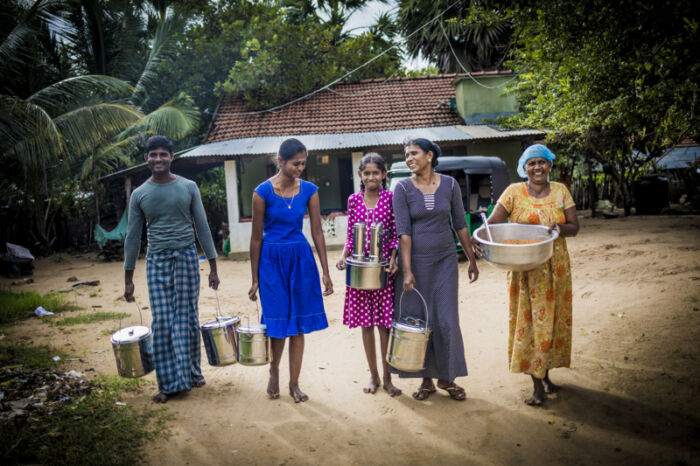
After the Tsunami catastrophe in December 2004, We Effect decided to re-start its support to the Tsunami-affected cooperatives in Sri Lanka. It responded to the appeal of the cooperative movement during the first stage of relief operations to support a few fisheries cooperatives in the districts of Hambantota and Batticaloa under the project title “Rehabilitation and Development of livelihood activities of Coastal Communities affected by Tsunami in Sri Lanka”. This intervention then expanded to other districts and cooperatives where the members are poor and affected by ethnic conflicts. From 2009, we have started development programs that focused on poverty reduction through increased community leadership, reduction of gender-based violence, and increased children’s education in participating communities.
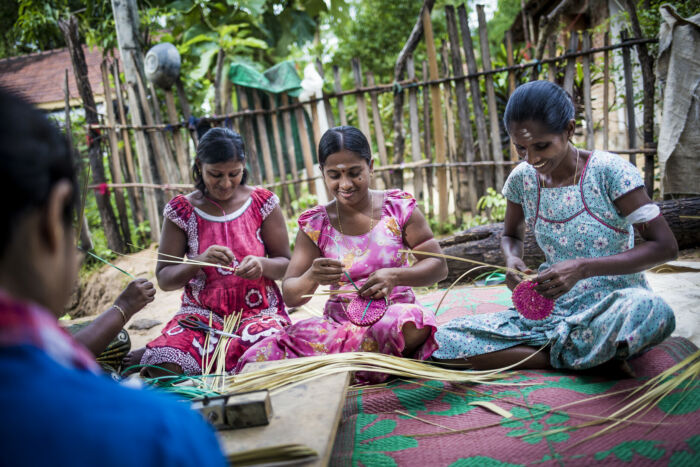
Photo by Marcus Lundstedt
Sri Lanka is divided into nine provinces and 25 districts, with Colombo as the commercial capital. Sri Lanka has a diverse demographic, comprising various ethnic groups including Sinhalese, Tamils, and Muslims. Despite achieving middle-income status, approximately 4.1% of the population lives below the national poverty line, according to the latest data. Poverty is more pronounced in rural areas and among marginalized communities. Food insecurity remains a significant challenge, with around 22% of the population experiencing moderate to severe food insecurity. Malnutrition is also a critical issue; the latest figures indicate that 17% of children under five are stunted, 15% are wasted, and 20% are underweight. These indices highlight the ongoing struggles with food availability and nutritional deficiencies.
Sri Lanka has a history of internal displacement, primarily due to the three-decade-long civil war that ended in 2009. Currently, thousands of internally displaced persons (IDPs) still live in temporary shelters, facing challenges in resettlement and reintegration. The country is highly vulnerable to climate change impacts, ranking 60th on the Global Climate Risk Index. Natural disasters such as floods, droughts, and landslides frequently affect the nation, exacerbating the vulnerability of already at-risk populations. The overall vulnerability index is high, reflecting significant exposure to environmental and economic shocks.
Sri Lanka faces considerable gender inequality issues, ranking 86th out of 189 countries on the Gender Inequality Index.
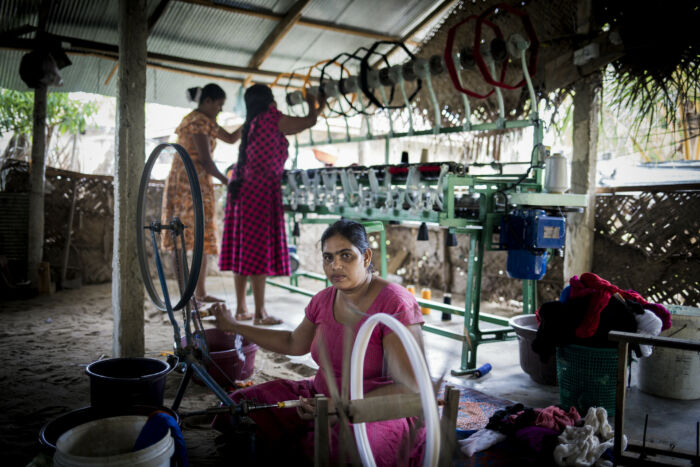
Women often encounter barriers in accessing education, employment, and political participation. Gender-based violence is also a pervasive problem, necessitating concerted efforts for gender equality and protection.
We Effect work to alleviate poverty and enhance food security. These efforts are crucial in fostering sustainable development, promoting human rights, and advancing gender equality. The presence of We Effect is essential in bridging gaps left by governmental and local initiatives, providing expertise, resources, and a global perspective to tackle complex socio-economic issues, especially incorporating a cooperate model.
Results in Sri Lanka:
- In 2023, We Effect has assisted around 100 village-level cooperative societies and supported 14 SGBV Task Forces (Sexual and gender-based violence Task Force). Currently, We Effect Sri Lanka together with its partners is supporting 175 primary cooperatives, transforming them into well-functioning entities capable of expanding services to their members.
- In 2023, 1600 ecofriendly home gardens have been established in 67 tea estates up to now and community members consume healthy vegetables and fruits produced from their own gardens now. More than 2500 fruit plants have been distributed among those members diversifying home gardens to ensure environment protection including perennial crops. 1880 members (1128 female and 752 males) were tapped to raise awareness about eco-friendly home gardening.
- In 2023, We Effect together with our partners provided training to 57 women’s groups in Sri Lanka. In addition to forming these groups with our partner organizations, capacity training in auditing, gender equality, IT, psychological modeling, bookkeeping, finance management, and leadership were also provided. These groups have saved a total of 648,315 Sri Lankan Rupees.
- In 2023, 39 community-level disaster management committees were established, and the capacity of these communities was enhanced to prepare and implement disaster management plans while conducting 26 campaigns on environmental resilience and justice by farmer organizations and the like.
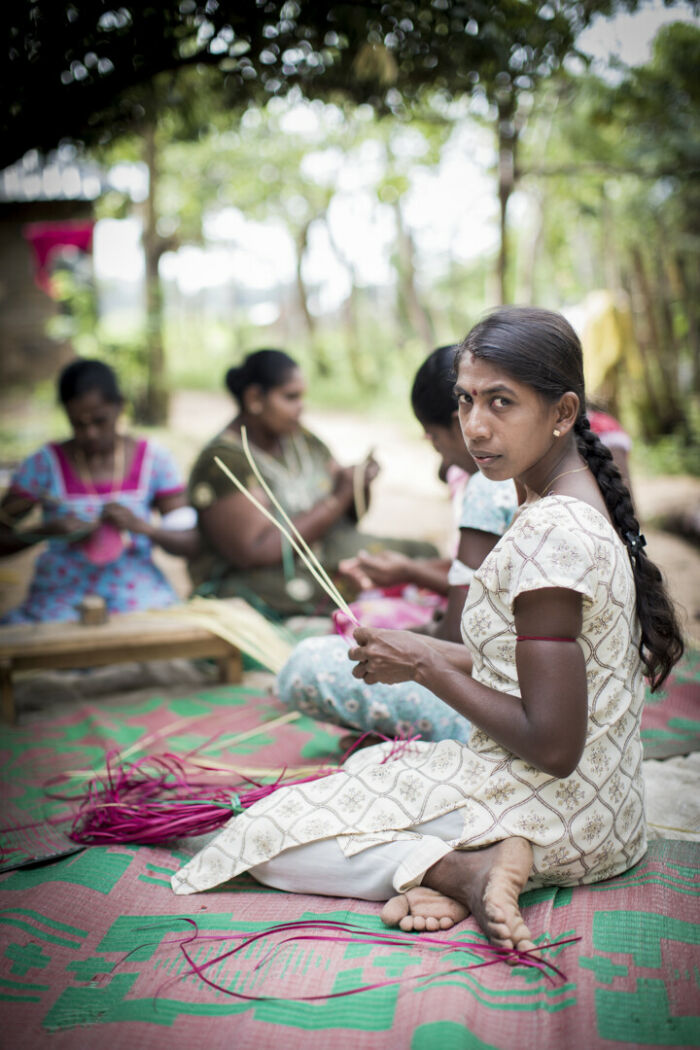
From victims of war – to women in business
Rural women in Sri Lanka are facing a new war. Against violence, lack of education and incomes. In a new partnership with Kaviya, We Effect Asia will empower 800 women to become entrepreneurs.
